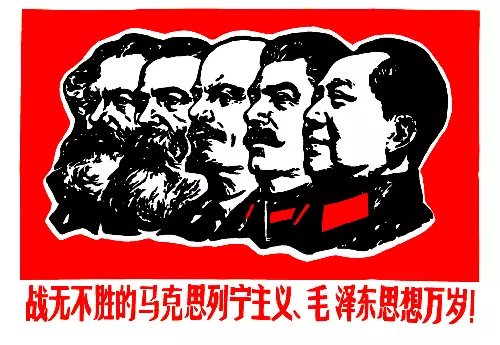This isn't intended to close the debate on what counts as socialism. It's a comment I wrote in one of the federated instances that I suspect will be deleted. So I'm posting the text here as I thought it might generate some good discussion:
It's okay for us to disagree on our assessments of AES, but these disagreements must be based on some common understandings. I don't think we're there at the moment. Partly this comes down to the way language has shifted in the last 200 years.
The dictatorship of the proletariat is to be contrasted with a dictatorship of the bourgeoisie. It means 'dictatorship' in the way that liberal democracies are dictatorships because they are governed by consistent (class based) institutions that hold executive, legislative, and judicial power.
The meaning of dictatorship has changed. Back then it more clearly meant something like 'governance by', and Marx's contemporaries would have inferred this meaning.
A dictatorship of the proletariat means the workers, not the capitalists, control the state and the means of production. In the words of one scholar, it means something like:
… either state-controlled [where the state is controlled by the proletariat] or private-but-worker-controlled economy with a democratically elected government and not necessarily single party.
The idea being that capitalism is a class-based political economy, and communism is the abolition of classes. The dictatorship of the proletariat is the stage of history where the workers have control of the state/means of production. Once the workers have such control, the distinction between bourgeois and proletariat falls apart. At that point we have reached communism.
You might even challenge the way that this has been tried so far. I would say to look again, if so. But either way, it doesn't change the theory. One can detest the way that an idea has been put into practice without rejecting the theory. As Kwame Ture advises, an ideology should be judged by it's principles, not it's practicioners.
No state has yet reached communism. The very idea is an oxymoron as communism is stateless. What some few states have begun to achieve (but no state has quite got there yet, as the class struggle is ongoing, although China, at least, is close) is socialism.
Marx used different terms in different works to discuss all this. As primarily a critic of capitalism, he didn't really flesh out a theory of socialism or communism in the way that you suggest. For that, we must look to Engels and to Lenin's State and Revolution. Nonetheless, a birds eye view of Marx's work reveals that he advocated for socialism (a dictatorship is the proletariat) as a stepping stone to communism. The logic of this progression grows directly out of an historical materialist analysis of class society.
At the same time, there is another sense of the Marxist concept of communism, but I don't think this is the one you mean. In The German Ideology, Marx and Engels wrote:
We call communism the real movement which abolishes the present state of things. Further, in the Communist Manifesto, they wrote: Communists everywhere support any revolutionary movement against the existing social and political conditions.
In this sense, Marxist-Leninists are 'literally communists' but Marxist-Leninist states cannot be 'literal[] communism' but they are socialist (or trying to be).
If you want to read a short text about socialist governance, you might enjoy Roland Boer, Friedrich Engels and the Foundations of Socialist Governance. His Socialism with Chinese Characteristics may also be of interest for giving a detailed analysis of governance in China.
You can still disagree with MLs, AES, and the above definitions and propose other definitions, but that would involve speaking at cross purposes. It might also involve idealism because throughout history the only revolutionary socialist projects to have succeeded for a significant time have been guided by Marxism-Leninism. It's okay (albeit idealist) to have a different concept of socialism but a definition based on concrete examples must look to Marxism-Leninism.
And one cannot simply dismiss the experience of the attempt of billions of people trying to build socialism as not socialism because it doesn't match an esoteric and contrasting definition of socialism.
Edit: the scholar referred to in the text is the person I was replying to, who criticised the DotP but gave a definition of socialism that could describe a DotP.

I can tell you the exact reasons why 1 in particular is no more. There were mistakes, but also 3rd party factors at play... I'd say it was about 50/50 regarding the mistakes and 3rd party foul play.